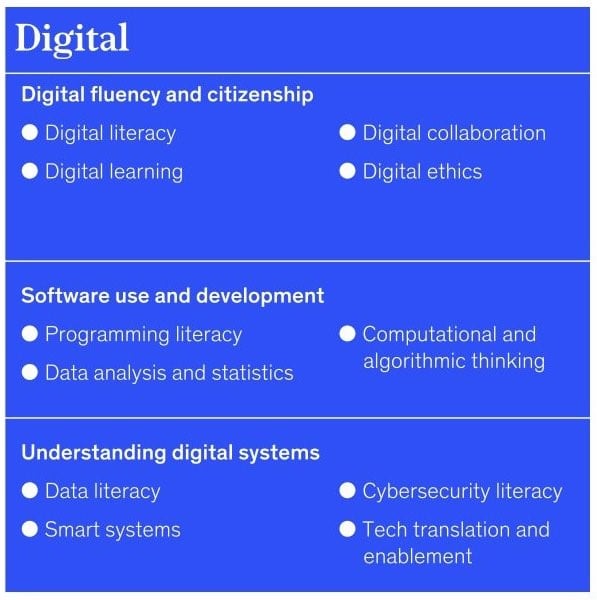
Photo: Hadija Saidi
How can we future proof digital skills?
When it comes to maximising digital activity, the two most common challenges organisations face are budget and skills, says Katie Moffat.
Unless you work for a large organisation able to employ specialists, the average marketeer these days has to be knowledgeable about a huge range of different areas, from data and analytics, to SEO, UX, content and social media. You need to be able to create engaging visual content, write brilliantly and understand how to reach and convert customers.
Historically the arts and culture sector has always struggled to attract staff with digital skills. This is likely, at least partly, because the sector is unable to pay salaries as high as they are in sectors such as retail, tech or entertainment.
And so to address the skills gap over the last five years, funders have created specific programmes that aim to upskill the sector, from ACE’s Digital Culture Network (DCN) to the National Lottery Heritage Fund’s Digital Skills for Heritage.
Initiatives like these are clearly having a positive impact, with a recent evaluation of DCN stating: “Impacts reported by users include identifying digital priorities, improved confidence, skills, knowledge, and reassurance from having a critical friend to sense-check plans and activities. The support has led to users implementing new digital activities or refining their existing ones.”
Shaping digital policy
But technology moves fast and as quickly as we become familiar with one area, something else appears that requires new understanding. For example, TikTok is only five years old, next year Google Analytics will be replacing its current version with a completely new one and before 2020 many arts organisations and staff did not routinely need to understand how to programme hybrid events and workshops.
In 2019, DCMS released a report that considered the digital skills which would be needed by the workforce over the next 10 years, acknowledging the ever-changing nature of digital skills.
“Digital skills will change over time. Policy should be shaped to anticipate this dynamism. Many of the fastest-growing skills and software packages in areas such as data analysis and digital marketing hardly existed just a few years ago. Skills policy must be dynamic, continually re-evaluating the skills that are and will be in demand to train workers for the skills of the future while also ensuring they have the skills needed for success today."
Negative impact of pandemic on recruitment
A recent McKinsey report further underlines this point, by outlining a set of digital-related skills they suggest will be required for the future of work. Many of these are unlikely to exist in all but the largest arts institutions.

Source: McKinsey report ‘Defining the skills citizens will need in the future world of work’
To further complicate matters, the pandemic has had a negative effect on recruitment to digital roles, with many Substrakt clients reporting that they have had to re-advertise posts due to lack of high-quality candidates.
So how does a small or medium-sized arts organisation deal with this challenge? How can you resource the required digital skills to realise your digital ambitions? In 2018, Kati Price and Dafydd James undertook an in-depth study into how GLAM (Galleries Libraries Archives and Museums) organisations typically approach this problem.
Their report identifies the myriad different approaches (and the pros and cons of each), for example upskilling people within a specific department, decentralising digital skills across the organisation or outsourcing to freelancers or agencies.
For anyone currently wrestling with the challenge of how best to ensure their organisation has the necessary digital capabilities, I recommend Price and James’ research as useful food for thought.
Cannot take our eye off the ball
We should take comfort in the fact that although the arts and culture sector tends to pay less than other sectors, it is one of the most rewarding sectors to work in. There will always be brilliant and skilled people who choose it over other sectors.
But we cannot take our eye off the ball and forget that the digital skills we have today are not necessarily the ones we’ll need tomorrow.
Regardless of how digital activity is organised internally, the most important trait individuals will need to ensure they have relevant digital skills is an interest in, and commitment to, continuous learning.
Whether through formal training programmes, informal networks, learning from – and in partnership with – agencies and other collaborators, there is a wealth of support out there to help you keep up to date on current and future digital skills.
Kate Moffat is Head of Sector Engagement (Europe) at Substrakt.
Substrakt is a digital agency that supports organisations in the arts and cultural sector with their digital work, through building websites and digital products alongside providing strategic consultancy, training and support services.
This article is part of a series contributed by Substrakt exploring the many ways in which arts and cultural organisations can embrace the world of digital.
Join the Discussion
You must be logged in to post a comment.